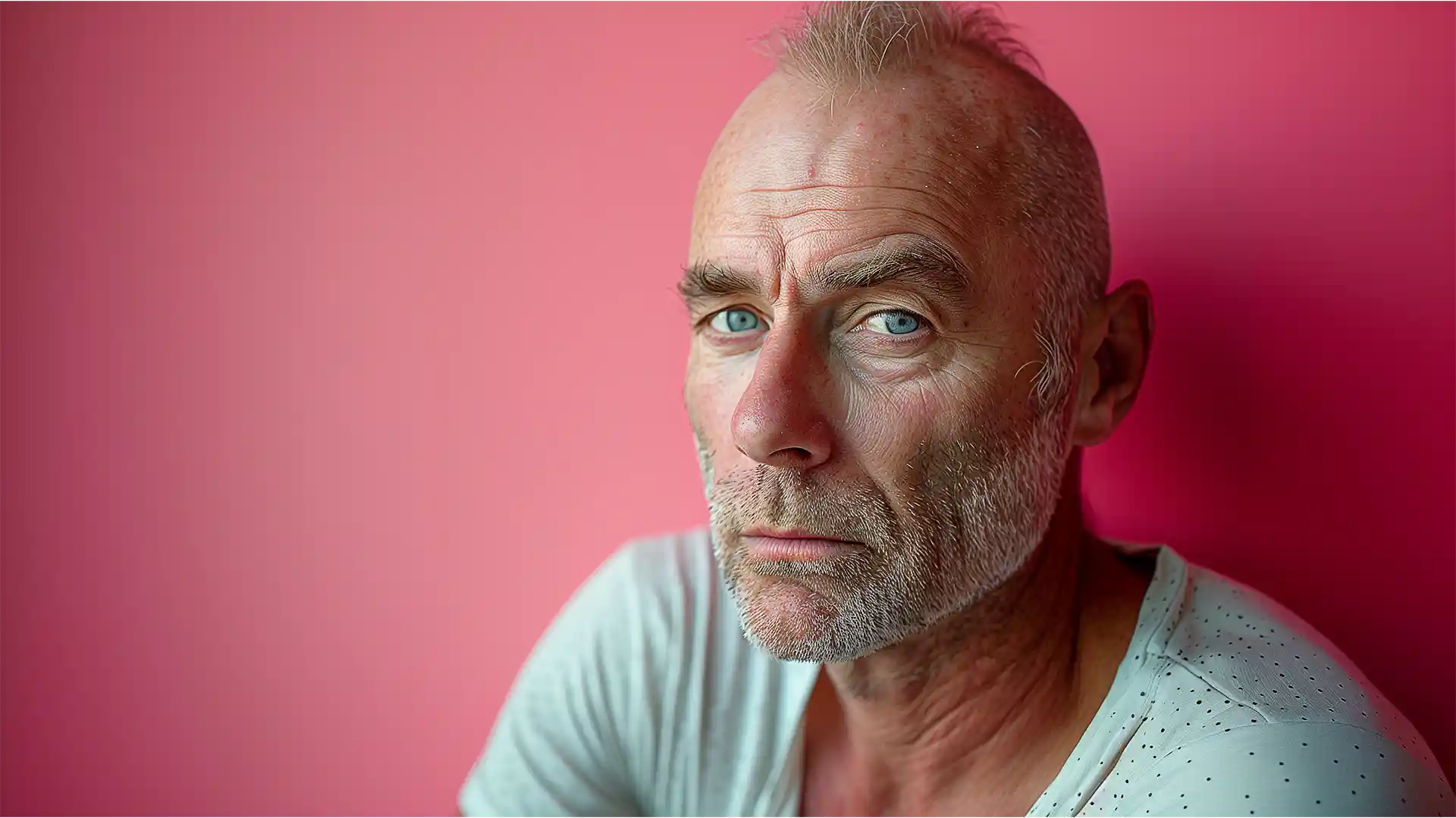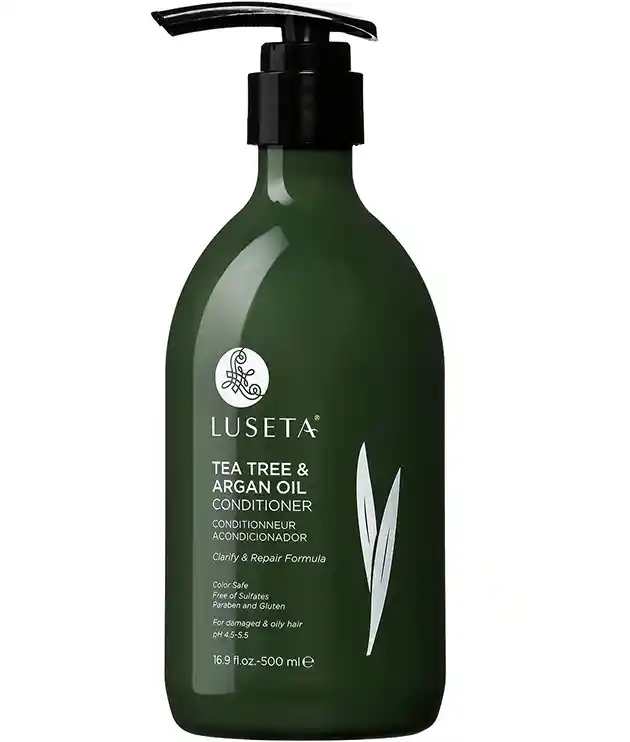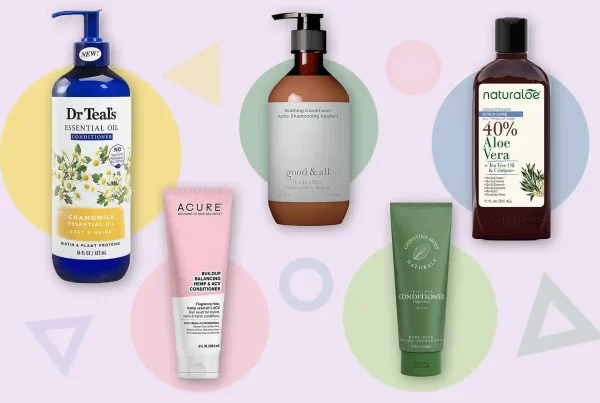Hair loss, a condition that transcends age and gender, manifests through the gradual thinning or outright shedding of hair from the scalp and potentially other body parts. While aging naturally contributes to hair loss, abrupt or excessive shedding warrants attention.
We may earn commissions from links on this page, but we are independent and only feature vegan hair products we truly believe in. Why trust us?
What’s Exactly Hair Loss?
Hair loss, medically termed alopecia, encompasses the reduction or complete absence of hair from the scalp and other regions. Both temporary and permanent in nature, it indiscriminately affects individuals of any age. Notably, hair loss isn’t confined to the scalp; eyebrows, eyelashes, and pubic regions can also be impacted. Its causes are multifaceted, including genetic predispositions, hormonal fluctuations, medical conditions, specific medications, and environmental stressors.
It’s crucial to differentiate between normal hair shedding and true hair loss. Shedding 50 to 100 strands daily is normal, but a higher volume may indicate an underlying issue.
Hair Loss in Figures
Hair loss is a global concern. Data from the Hair Loss Statistics (2023) reveal:
- Approximately 85% of men and 33% of women will confront hair loss in their lifetime.
- Male pattern baldness, or androgenetic alopecia, accounts for 95% of male hair loss.
- About 25% of men begin to lose hair before reaching 21.
- Hair loss has strained relationships for 40% of affected women.
- 63% of women feel that alopecia has hindered their career progression.
- 71% of individuals with hair loss know a family member with a similar condition.
These figures underscore the extensive impact of hair loss on personal and professional aspects of life.
There are many causes of hair loss, including genetics, hormonal imbalances, medical conditions, medications and environmental factors.
Internal Causes
The number #1 cause of hair loss is androgenetic alopecia, also known as male pattern baldness or female pattern baldness, a genetic condition that affects both men and women. It affects an estimated 50 million men and 30 million women in the United States. Caused by a combination of genetic and hormonal factors, it results in the gradual shrinking of hair follicles and a shortening of the hair growth cycle. While male pattern baldness can lead to a complete hair loss, female alopecia rarely leads to complete baldness. Note that there are no treatments available to cure androgenetic alopecia, but there are ways to limit its impact.
Other internal causes of hair loss include:
- Autoimmune disorders like alopecia areata, where the immune system targets hair follicles
- Thyroid disorders can lead to hair loss due to gland dysfunction
- Scalp infections, such as ringworm, which can cause hair loss in the affected area
External Causes
Environmental elements also play a role in hair loss:
- Exposure to harsh chemicals and extreme heat from styling devices can weaken hair
- Nutritional deficiencies hinder hair growth, emphasizing the need for a diet rich in proteins, iron, zinc, and vitamins B12
- Certain medications or treatments, notably chemotherapy, often list hair loss as a side effect
How to Prevent Hair Loss
Hair loss prevention can be achieved through a combination of lifestyle changes, proper hair care, and medical treatment, depending on the underlying cause of the hair loss. Here are some tips to prevent hair loss.
Maintain a Healthy Diet
To prevent hair loss, eating a balanced diet that is rich in vitamins and minerals is essential. Proteins, iron, zinc, and vitamin B12 are particularly important for hair and scalp health, and you can easily include them in your vegan diet:
- Protein: seitan, lentil, hemp seeds, tofu, beans, spelt or a protein supplement
- Iron: dried seaweed, sesame seeds, hemp seeds, chia seeds, olive, cashew or an iron supplement
- Zinc: beans, pumpkin seeds, hemp seeds, pine nuts, pecans or a zinc supplement
- Vitamin B12: nutritional yeast flakes, cereals, vegan milk or a vitamin b-12 supplement
Follow these easy recipes (by Bianca Taylor) if you want to follow a vegan diet full of protein:
Avoid Harsh Hair Treatments
Chemical treatments like bleaching, straightening, and coloring can damage the hair and lead to hair loss over time. Besides, heat styling tools (e.g. straighteners and curling irons) can also damage the hair. Avoiding or limiting these treatments can help to prevent hair loss.
For those recovering from aggressive treatments (e.g. aggressive bleaching sessions), vegan hair restauration options are available.
Practice Good Hair Hygiene
Regular, gentle washing and cautious drying are fundamental. Avoid hot water and harsh scrubbing to prevent breakage. This instructive video by Doro Cubillo shows the mistake we all make while washing our hair:
Reduce Stress
Stress can cause hair loss, so finding ways to manage stress is important for preventing hair loss. Practicing relaxation techniques like meditation, deep breathing, or yoga can mitigate hair loss by reducing stress.
Medical Treatments
In some cases, medical treatments may be necessary to prevent hair loss:
- Medications like minoxidil and finasteride can help to promote hair growth in people with androgenetic alopecia. But not only can they cause irritation, but the products containing them are definitely not vegan nor cruelty-free.
- Hair transplant may be the most effective, though invasive, solution to stop hair loss.
Wear Protective Hairstyles
If you have naturally curly or kinky hair, wearing protective styles like braids, twists, or weaves can help to prevent hair breakage. Opt for looser styles to avoid tension.
Vegan Michele’s Tips to Stop Hair Loss
In this video, Michele offers natural strategies for hair regrowth, acknowledging the distress associated with hair loss.
Conclusion
Combating hair loss effectively demands a holistic approach, integrating lifestyle changes, diligent hair care, and, when necessary, medical treatment. While this guide offers valuable insights, it is not a substitute for professional medical advice. Always consult a healthcare provider for personalized guidance.
Even if well-documented and carefully written, this content should not be used as a substitute for professional diagnosis and treatment. Consult a qualified health care provider before making any health care decisions about any specific medical condition.






